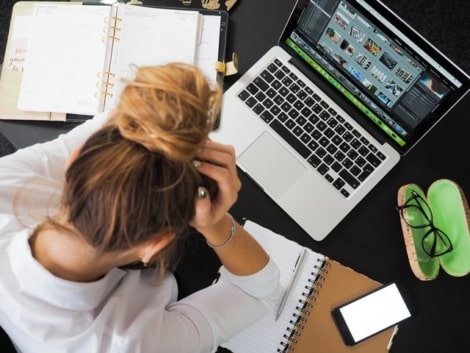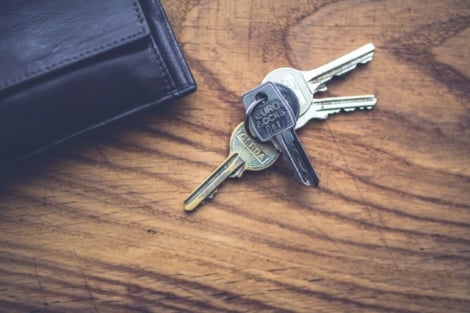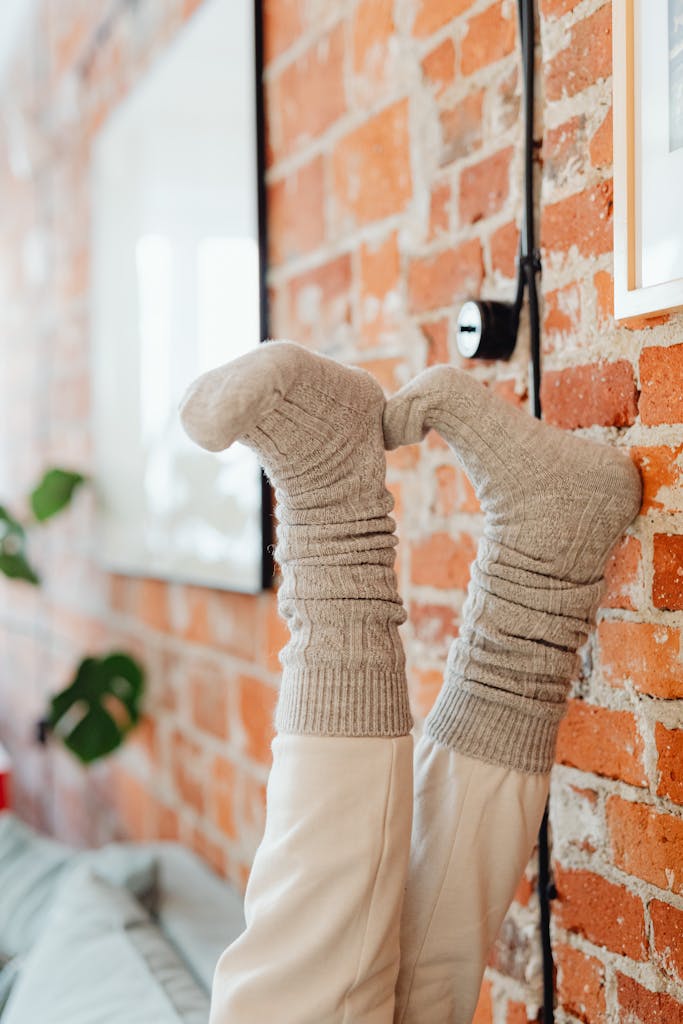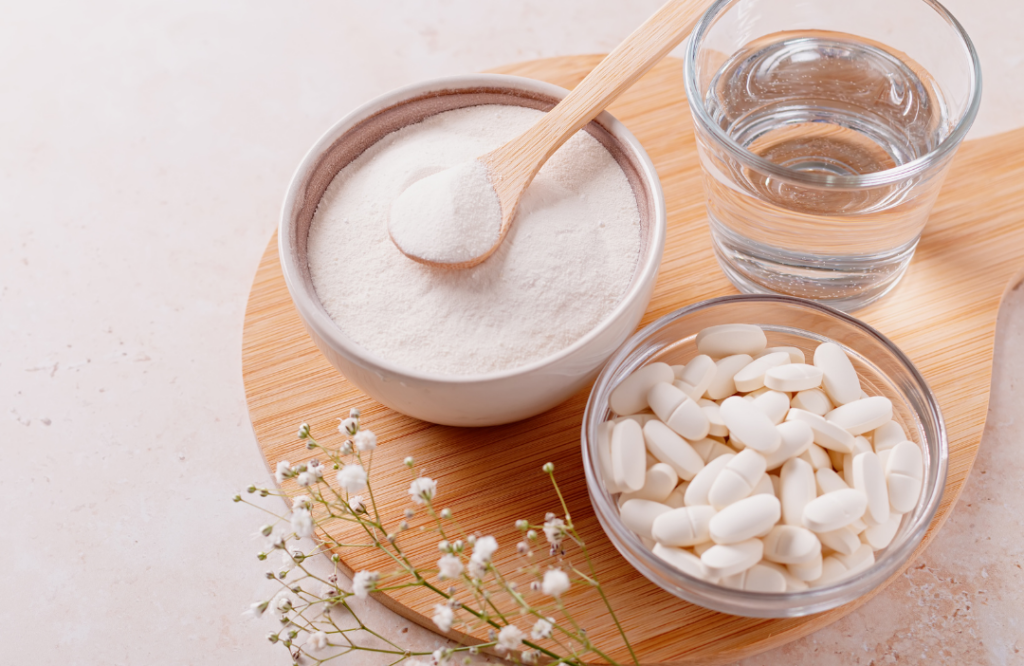Subtle Signs of Anxiety and What to Do
Published on January 23, 2018 by Dr. Caitlin Gordon
You may be experiencing signs of anxiety without realizing it. It wasn’t until I was 25 that I even identified with the term “anxiety” to describe feelings. I was familiar with feeling nervous, or stressed, but anxious? Not in my vocabulary. It took even longer to start to notice what anxiety actually felt like in my body. There are still days where I notice symptoms of anxiety even though intellectually I don’t recognize my emotional state as being anxious. It can be subtle, and our bodies and behaviors can clue us in when our mind is busy thinking everything’s just fine.
Here are some indications you may be experiencing anxiety:
Losing your temper
We typically associate flying off the handle with feeling angry. However, the short-tempered behavior is usually the result of needing a release for the uncomfortable and uneasy internal feelings. We might not identify these inner emotions as anxiety, but often it is fear that fuels the explosion, snappiness, or irritability. The release of energy from yelling, cussing, or otherwise losing your sh*t offers some momentary relief from the unease. If you notice yourself being more reactive, look deeper into where the unsettled feeling is coming from. Where are your needs not being met?
Controlling Behavior
When we feel anxious, worried, or fearful, we often try to control our environment to escape these feelings. The illusion of control makes things seem predictable and less chaotic. Our nervous systems want to feel like we know what to expect. We also feel reassured when we exercise our power. Feeling like we can control other people or our environment tricks us into thinking we can control the future or our own feelings. If you notice yourself wanting to control your environment (the noise, the lighting, the logistics, the planning, the food, the conversation, etc) check in and see if you can identify the source of your unease. Can you sit with the unknown?
Criticizing

When we feel anxious, our inner critic tends to get very loud. Without even being aware, we may be running an internal dialogue that includes a lot of “shoulds”. Thoughts like, “You should go exercise; you shouldn’t eat that, or you should send that email” are examples of should-thinking. This sets us up to feel shame and guilt for our behavior. These are major drivers of anxiety. We can become self-critical in other ways too, focusing much more on our perceived shortcomings than our gifts and skills. This is called a negativity bias, and it’s part of how the brain is wired.
When we get into these critical headspaces, the criticism easily flows outward as well. We notice everything our partner is doing wrong. We can’t stand how incompetent our coworkers are. Our parents have so many issues. These are signs that we are feeling anxious. What could you be grateful for in this moment, instead? Do you need some reassurance or connection from a loved one?
Hypochondriac tendencies
You might not be aware of feeling anxious, but you do find yourself googling your headache or random twitch in your toe and worrying that maybe something is really wrong with your health. If you find that you start to catastrophize more frequently or have a general sense that something is wrong with your body, you are likely experiencing heightened anxiety.
There are times when this kind of anxiety is due to there being something physically wrong. Anxiety is an alarm system from our physical body. However, anxiety stemming from a revved-up nervous system and emotional or environmental circumstances that cause stress can also create a lot of symptoms that disappear when the anxiety is addressed. Schedule an appointment for a functional med consult for peace of mind and then check in with yourself. What else is going on in your life that may be causing anxiety? Where are your values and actions out of alignment?
Sweating
Unexplained sweating is often a sign of anxiety. If you notice you get sweaty on your drive to work, before meetings, or while doing tasks you don’t like, this is a sign your nervous system is in a sympathetic state (fight, flight, or freeze). Caffeine, hormonal imbalance, and other stimulants can cause increased sweating and increased anxiety. If you notice sweating, try taking a 5-minute break to do a guided meditation and or some deep breathing. If sweating continues to be a problem, schedule a functional med consult.
Your mind won’t turn off at night
In the evening, cortisol levels are supposed to drop, allowing melatonin (a sleep hormone) to rise and help us wind down and get good rest. If we are experiencing anxiety, cortisol levels stay high and this makes it hard to go to sleep or stay asleep. If you find yourself having a hard time getting your mind to turn off before bed, or you wake up thinking during the night, you are experiencing signs of anxiety. Next time you’re up at night thinking, try writing down your thoughts and then doing a 10-15 minute guided meditation (use phone aps!). There are a ton of tips for helping to calm the monkey brain, and health coaching is a great start if you need support.
Trouble making decisions
Anxiety can manifest as an inability to make decisions. You may find that you can’t decide on a restaurant for dinner, on what shoes to wear, on what color to paint the walls. Trouble making decisions can be a combination of lack of clarity around what you want, and anxiety about making the wrong choice. When we are experiencing anxiety, we tend to worry too much about the consequences of our choices, even minor ones.
If you notice yourself suffering from indecisiveness, tune into your body. Do you feel buzzy? Is your breath stuck in your chest? Will the decision be one you remember tomorrow? Next week? Next year? Sometimes this helps put into perspective that making a decision won’t have long-term consequences. It may also help to remind yourself most decisions are not permanent and you can change your mind later or make a different choice in the future.
Low self-esteem
You know those days where you look in the mirror and can only see your flaws? You don’t like how clothes fit, and you just feel uncomfortable in your own skin? These are classic signs of anxiety. When we are anxious, we tend to fixate on the negative about ourselves. We might not realize we are feeling anxious, but we will struggle to find clothes that we think feel good or look good. You may struggle to figure out what to eat or feel stressed about missing a workout. This kind of anxiety can also feel like a general sense of malaise or unease.
While low self-esteem can cause anxiety, anxiety can also cause low self-esteem. We are much more self-critical when we feel anxious. When you notice these behaviors try the following: Name three things you love about yourself. Say them out loud. Ask what would feel comforting and supportive and seek that out. Write down 5 things that make you feel really good in your body. Put this list somewhere you can reference on high anxiety days.
 Forgetfulness
Forgetfulness
Do you find yourself forgetting where you put your keys, your phone, or your wallet? Do you have to make several trips back in the house when you try to leave because you’ve forgotten things? Are you missing appointments or deadlines or forgetting bills? These can be signs of anxiety. When we are anxious, we aren’t being present. Our mind is worrying about hypothetical situations or future events. If we were firmly grounded in the present moment, we wouldn’t feel this way. Lack of presence leads to forgetfulness and distracted behavior. We operate out of habit instead of with intention.
There are other causes of forgetful behavior, so if you don’t have any other signs of anxiety it would be wise to schedule a functional med consult to get some recommendations for cognitive support and look at other underlying causes. Meditation is one of the best tools for cultivating presence and awareness. Have you taken on too many responsibilities? Are you overscheduled? Do you have enough help? Enough downtime? Is there something that is preoccupying your thoughts? These are all important questions to ask if you’re noticing forgetful behavior.
Get the help of an expert
There are many emotional, spiritual, and physiological reasons why you may be experiencing signs of anxiety. A holistic approach that looks at all the possible factors and addresses each is the best approach. As someone who has struggled with anxiety since childhood, I understand the toll it takes on our health, even when we aren’t conscious of feeling anxious. I can help you identify the sources and the solutions that will help you feel grounded, energized, relaxed, and motivated. Schedule below.
Curious which foods help with anxiety? Download the free PDF of the Top 8 anxiety-reducing foods here
The contents of this site, including text, graphics, images, and other material are for informational purposes only. Nothing contained in this site is or should be considered or used as a substitute for professional medical or mental health advice, diagnosis, or treatment. Please schedule an appointment for personalized health advice.






